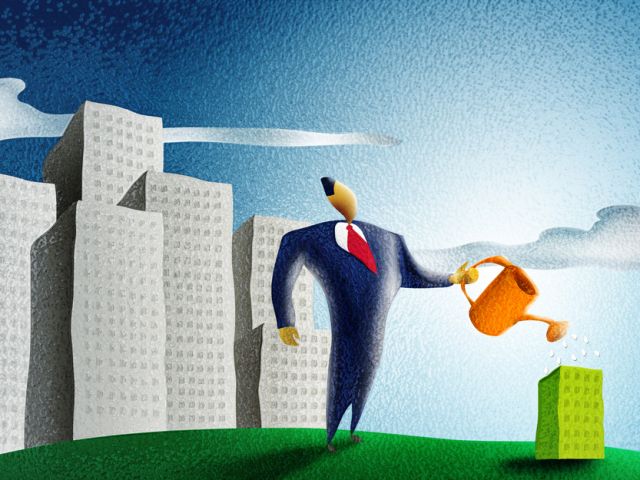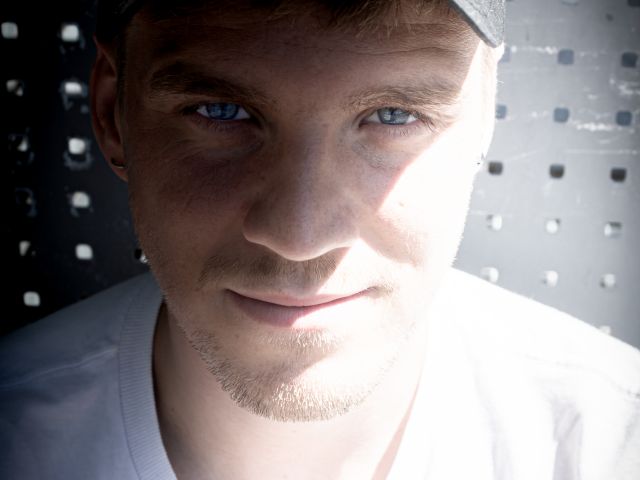MBA and master’s students from Canada and CBS solve sustainability issues together in cyberspace

(Illustration: Shutterstock)
Bringing MBA students from Rotman School of Management in Canada together with master’s students from CBS started as an idea that came to life with the COVID-19 pandemic. In teams online, the students are devising solutions to sustainability issues in Denmark and Canada – for example, how to electrify the bus fleet in Toronto.
The worldwide pandemic is hindering taking exchange trips to give your degree some international flair. But the COVID-19 pandemic is precisely what enabled Assistant Professor Kristjan Jespersen from CBS and Instructor Richard Blundell from Rotman School of Management at the University of Toronto in Canada to realize their idea.
And now they are bringing together MBA students from Rotman and master’s students from CBS to solve real-life sustainability issues in cyberspace across The Atlantic.
“We had been talking about it for a year or so. The course I teach usually focuses on North America and ends with a trip to Silicon Valley, but I couldn’t do that this semester, so I called Kristjan and asked if we should just do this. So the pandemic accelerated the process,” says Richard Blundell from his home in Toronto.
Starting in September, 30 MBA students and 30 CBS students got together online and have been divided into six teams to solve three different sustainability-related issues, which they will work on until the end of November.
For example, two teams are trying to come up with ways to electrify the bus fleet in Toronto, while two other teams are exploring incentives that can lead to improvements of buildings that emit a lot of CO2.
“The technology for doing a course like this is sufficient, and the universities are eager to collaborate right now. Especially because things won’t go back to normal for quite a while – if ever,” says Kristjan Jespersen, explaining that his master’s students are “incredibly engaged in the projects”.
“When I announced the collaboration to them, their faces lit up. They were like, ‘finally something new’. I’m really impressed with the commitment on both sides despite the time differences and all.”
Deep knowledge across the ocean
The differences between the MBA and master’s students are easy to spot; the age gap, different levels of work experience and different national backgrounds. However, blending the two groups of students makes a lot of sense, according to Richard Blundell.
“Kristjan and I agree that in order to explore global and sustainability issues properly, you need a global outlook. So bringing together the students influences the outcome. The two groups of students have insights from both sides of the ocean. The richness of knowledge gives the students a much deeper learning experience,” he says.
Kristjan Jespersen wants to give the students an understanding of how they can use their international capabilities during their studies and work.
“I want the students to understand that they can draw on these geographies to come up with solutions wherever they work in the world,” he says and continues:
“That’s why internationalization is more important than ever. We need to connect with people in different ways if we want to work towards meeting the sustainable development goals and push the sustainable transition. We have to test our solutions at international levels, as we do not live in a vacuum.”
I used to live on airplanes. And I haven’t been on an airplane… wow. I don’t remember. I almost can’t remember
Richard Blundell
Because, according to Kristjan Jespersen, there are different understandings of sustainability across borders, and that is vital insight in itself.
“Sustainability is deeply engrained in Danish society here where we live, in the legislation we have, and the graduates we develop. We are in a sustainability bubble, but we have little to no clue about how things change across geographies. How do we talk about sustainability across countries? We need to think about that if we want to meet the UN Global Goals for Sustainable Development. If Danish companies want to sell green solutions, they must understand how Americans or Indians interpret sustainability,” he says.
The new normal
So far, the course is set to run for this semester initially. But the hopes and goals exceed that achievement.
“If Kristjan had his way, the course would run all year around, but that’s easier said than done,” says Richard Blundell and laughs.
“The goal is to open this up to more schools next year, though. I’m hoping we will have maybe four schools joining,” he continues.
Although COVID-19 makes it impossible to meet face-to-face and get a more conventional international experience, the pandemic might as well bring more experiences with it than it is taking away from us, argues Richard Blundell.
“I used to live on airplanes. And I haven’t been on an airplane… wow. I don’t remember. I almost can’t remember. Can you believe it? The last time was in February when I taught in Dubai. Those days are over, it’s not going to be like that again. Everything has moved online because of COVID-19 and made many things and activities more accessible,” he says and continues:
“And it has changed how we work and spend our time. I can be outside more and reconnect with nature, and I hope that will become the new normal too. David Attenborough was asked what he had been up to during the pandemic; ‘listening to birds’, he said.”






































































































































Dear Christina,
This experience is offered through the Consulting for Sustainability Class: https://kursuskatalog.cbs.dk/2019-2020/KAN-CCMVV1801U.aspx
The class runs in both the fall and spring semesters.
Sincerely,
Kristjan Jespersen
What CBS coures offers this program with Canadian MBA students or are you selected based on applications to the program?